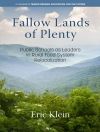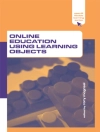Critical criminological theories and perspectives are typically major components of Criminology degree courses. An Introduction to Critical Criminology is the first accessible text on these topics for students of criminology, sociology and social policy. Written by an experienced lecturer who specialises in the topic, it offers an in-depth but accessible introduction to foundational and contemporary theories and perspectives in critical criminology. In doing so, it introduces students to theories and perspectives that challenge mainstream criminological theories about the causes of crime, and the operation of the criminal justice system.
With the inclusion of boxed examples, key points and sample essay questions An Introduction to Critical Criminology is ideal for students of Criminology because it explores in detail a vast array of critical criminological theories and perspectives.
Зміст
Introduction;
Part One: Foundational critical criminology;
What is critical criminology?;
The labelling perspective;
Conflict perspectives in criminology;
Marxist criminology;
Part Two: Critiquing foundational critical criminology: challenges from Left and Right;
The advent of neo-conservative criminology;
Left realism: criticisms from within?;
Feminist critiques;
Part Three: Contemporary critical criminology;
Critical perspectives on crimes of the powerful;
Green criminology;
Cultural criminology;
Critical Race Theory;
Part Four: Critical perspectives on punishment;
Punishment and control;
Part Five: Conclusions;
Future directions in critical criminology.
Про автора
Pamela Ugwudike is associate professor in criminology at the University of Southampton. Her research projects have focused on criminal justice practice and they have been funded by the Welsh Government, the Youth Justice Board, the National Probation Service, and the Prison Advice and Care Trust.












